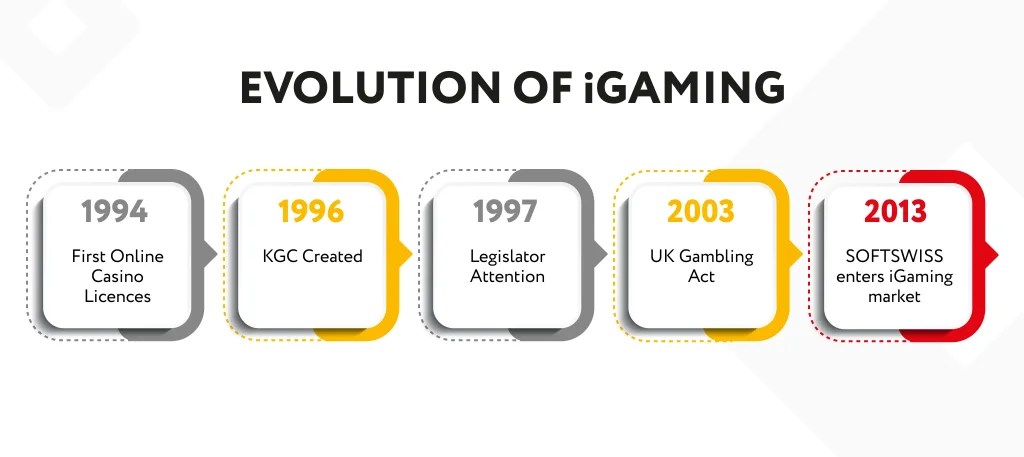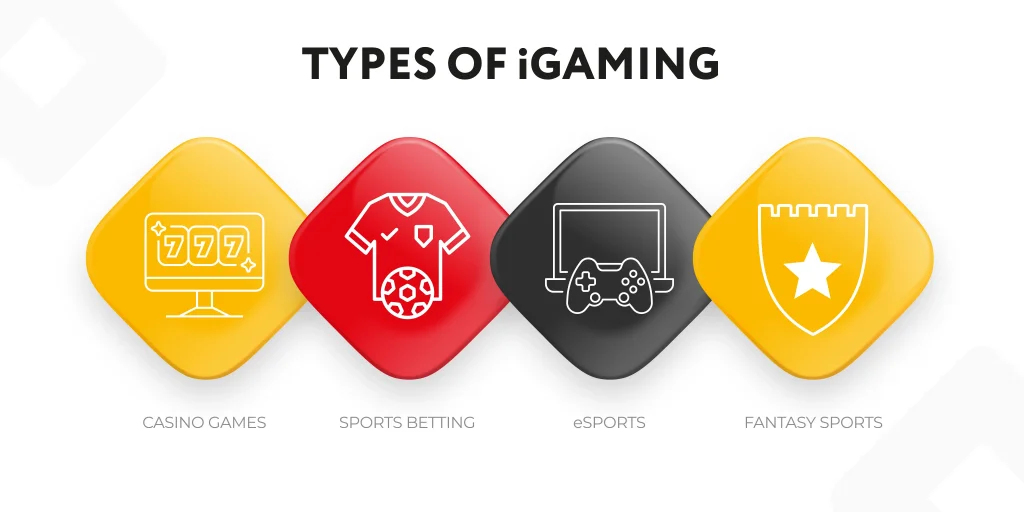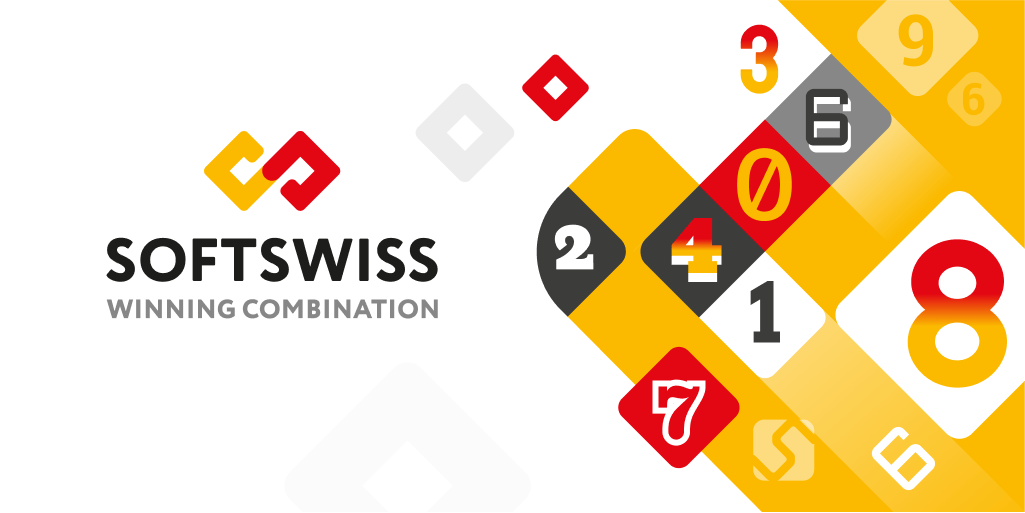The success of this industry largely depends on taking the casino out of the slot hall and bringing it to the player, at their fingertips whenever they want it.
What Does iGaming Mean
The term iGaming can be used in a narrow and in a broad sense. In the narrow sense, iGaming refers to online betting on the outcome of a game of chance using electronic means. So we say the ‘i’ in iGaming stands for internet.
iGaming involves online betting via electronic means.
If we use the term iGaming broadly, we mean an industry that spans multiple online verticals and the different entities in these verticals.
For example, a company that develops games software for online casinos (a game provider, if you will) is part of the broader iGaming market. Similarly, gambling software platforms developer, such as SOFTSWISS, falls into the category of iGaming software suppliers.
In contrast to games of chance, the outcome of which is strongly influenced by RNG or fortune, there are so-called games of skill.
The former includes online casinos, online sports betting, sweepstakes, online lotteries, bingo, fantasy sports and eSports. The latter include card games (poker, blackjack, bridge, etc.), as well as chess, backgammon and other games in which the result depends more on the mental skill of the player than on chance.
There is some lack of clarity in the iGaming industry about whether games of skill should be included in the broader definition. You will definitely meet both parties at iGaming events.
How iGaming Started
The iGaming industry has grown rapidly thanks to urbanisation, technological advancement, and the popularisation of the internet around the world. Below we describe the major events that have shaped the online gambling industry since its inception.

1994 – the government of the Caribbean nation of Antigua and Barbuda adopted the Free Trade & Processing Zone Act, which allowed the issuance of licences to companies aimed at opening an online casino.
1996 – the Kahnawake Gaming Commission (KGC) created. Its main activity was the licensing of online casinos around the world. In 1996, there were only 15 gambling sites, but only a year later there were already 200.
1997 – the rapid growth of the industry attracted the attention of legislators. After much deliberation, the US Senate finally passed the internet Gambling Prohibition Act in 2006, which made it illegal to promote and sell gambling goods and services to the public. However, a few years ago, this Act was repealed and reviewed. US states now decide on their own rules at the state level.
2005 – the United Kingdom created the Gambling Act, which established the Gambling Commission to oversee all gambling and made it possible for gambling sites to operate legally
2013 – SOFTSWISS made its first foray into the iGaming market with its Online Casino Platform.
iGaming Regulation Worldwide
Thanks to the popularisation of the internet, not only local operators, but also foreign ones can provide players with online gambling services. Legislatures of different countries are trying to pay attention to this and, as a result, establish their own rules for regulating the iGaming industry.
iGaming operator – a person in charge of an iGaming business, who runs daily operations and marketing, offering online wagering to end users.
In many countries around the world, the activities of online gambling operators are legal and regulated by the state. In Europe, such countries include Belarus, the Czech Republic, Estonia, Sweden, Finland, Norway, and others.
Such geographical markets are often referred to as regulated markets and require local licences. Similar to land-based gambling, online gambling providers must be licensed to offer services to players in a particular country.
In Lithuania for example, online operators must hold a certain number of active land-based gambling venues in the country before they are allowed to run an online gambling website.
Some countries might in fact ban online gambling entirely, like Israel. Other countries might neither allow, nor prohibit online casinos. The Netherlands is one example of a country that, until October 2021, had no bans or regulation for iGaming. When legislation finally appeared it became a regulated market, where online casinos were recognised and regulated by law.
Whether online wagering is legal in a certain country or prohibited largely depends on the laws of any given country.
The iGaming Industry Today
The COVID-19 pandemic greatly impacted the gambling industry internationally. Land-based casinos, bookmakers, and gambling halls were closed, and sporting events in which players could bet were suspended. This situation contributed to a sharp increase in demand for online gambling.
In 2021, the global online gambling market was estimated at over USD 70 billion, and analysts expect it to grow steadily in the future.
Mobile technology allows iGaming to become more attractive to players than traditional brick-and-mortar casinos. Players can choose from an assortment of themes, cutting-edge graphics, animations, and up-to-date soundtracks.
Far before COVID-19, the market was stimulated by the growing popularity of smartphones with improved internet access. The number of mobile devices worldwide will only rise.
For people who want to add new sensations to a familiar experience, VR/AR technology can complement online wagering. Today, Evolution – one of the leading live casino providers – is exploring VR technology application, having previously released a VR experience based on the popular Gonzo’s Quest slot title.
Prospects of the iGaming Industry
There are more and more technologies that influence the promising growth of the online gambling market in the near future. Let’s take a closer look at each.
Blockchain technology
There are two types of online casinos that use blockchain technology: a crypto casino with the integration of crypto payment systems and another one based directly on the blockchain.
In the first case, the online casino accepts cryptocurrencies such as Ethereum (ETH), Litecoin (LTC), Bitcoin (BTC), on par with fiat currencies for deposits and withdrawals. This is usually made possible via an integration with a crypto processing payment method.
In the case of a blockchain casino, crypto transactions occur without intermediaries, directly between the player’s crypto wallet and the blockchain via the game.
The technology records the results of the game and makes it impossible to influence them. Blockchain also provides maximum anonymity, since no personal information is required when registering a user account at the casino.
Using blockchain technology in the online gambling industry offers multiple advantages. Withdrawals are processed almost instantly without delays to start betting.
In addition, iGaming operators working with cryptocurrencies offer the lowest commissions for depositing and withdrawing funds. The reason is the lack of intermediaries and decentralisation.
Streaming and social media
iGaming consumers are demanding more live streaming and video content. So it is no surprise that video streaming is in high demand.
Streaming gives users the opportunity to watch their favourite streamer wager in real time and live the highlights of the game with them. Streamers also try to make the broadcast spectacular, so they choose slots with frequent bonuses and generous payouts and do not skimp on emotions during the broadcast.
All this attracts user traffic to the online casino, especially if the given operator and the specific streamer are partners. The streamer places on their webpage useful information for players, for example, operator rating indicators, interspersed with banners and links to the partner casino site.
Not every streaming platform encourages gambling ads. For example, in 2021 clips and broadcasts on the Twitch platform that featured promotional codes and referral links to gambling sites were banned. The platform ordered streamers to remove such content. However, the casino streaming is not entirely gone from Twitch.
Gamification
To attract a young audience and maintain the level of interest in the game, online casinos add elements of gamification to the gameplay. Gamification is the addition of additional engagement and loyalty opportunities inherent to the video game industry. This can include character selection, quests, level rewards, and much more.

Gamification allows an operator to increase player retention rates through player motivation. Depending on the choice of mechanics or gamification tool, the operator satisfies the different needs of the players.
For example, the organisation of tournaments gives a player the opportunity to compete and become the first among others. The most successful gamblers are displayed on the leaderboard and receive a variety of bonuses from the online casino.
Character selection allows the player to add personal preferences to the game, which affects their involvement and interest in the gameplay.
Quests are fun and interesting missions that become more challenging from level to level. For the successful completion of quests, the player receives a prize, maintaining satisfaction and the desire to continue the game.
Game graphics and 5G
Currently, HTML5 is widely used to create slot games. HTML5 slots offer players fast-loading low-size games that work across all platforms. However, HTML5 is not the only engine that is used to develop slot games. More and more attention is paid to Unity, a game engine for developing 3D game content popular across mobile gaming and desktop gaming at large.
Download speeds directly affect game loading times. The solution comes in the form of 5G technology. Though this is something largely outside the scope of an iGaming operator and more in the hands of players, 5G is one way to make your casino or sports betting experience much smoother as a player.
You’re Closer to iGaming Than You Realise
Recently, a lot of factors have influenced the rapid growth of online gambling. The COVID-19 pandemic, forced lockdowns, and advances in mobile technology. These are all driving factors for the brick-and-mortar gambling market to shift to online wagering. iGaming is rapidly developing on part with information technology, software development, blockchain and mobile. If any of these sound familiar to you then you are likely to have brushed against iGaming at some point in time.

